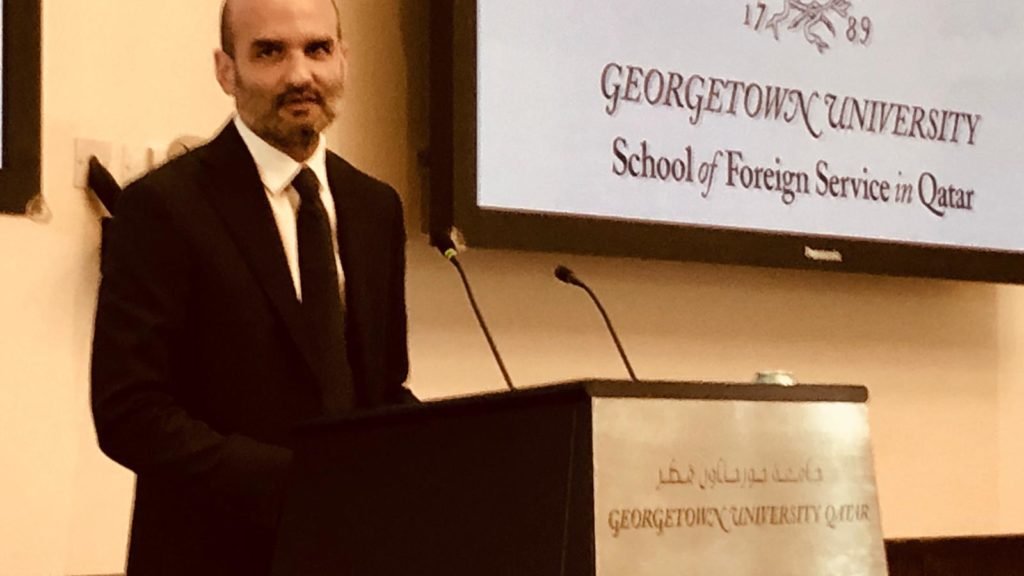Student Groups Host ILO Rep in Qatar for Labor Reform Discussion

The head of the International Labour Organization (ILO) Project Office in Qatar, Houtan Homayounpour, was on campus on February 20, 2019, to discuss the current ongoing labor reforms led by the State of Qatar and supported by the ILO.
The event was a collaboration between two student clubs, The Human Rights Club and The Future is Female. Ritica Ramesh, president of The Human Rights Club, said: “The ILO office has been open for almost a year now, so we felt it was important to create an opportunity for our community to engage with their representative on the critical issue of labor reforms.”
Ritica served as moderator, introducing the speaker to an audience of students, faculty, and staff, who took part in a lively Q&A throughout the presentation on the milestones already achieved, as well as the challenges that remain.
Homayounpour praised Qatar for using the World Cup as an opportunity to institutionalize labor reforms through careful analysis and legislation, which he explained can take time but is the only way to ensure changes are sustainable. While recognizing the gains already made, he stressed that the work is far from finished, noting that the next reforms would focus on the removal of the exit visa for domestic workers, the establishment of a non-discriminatory permanent minimum wage, and the removal of the NOC requirement.
“Everyone is watching our partnership with Qatar, and I’m confident that if we continue on our current path together, we will be successful”, he said in concluding remarks.
The five pillars comprising the scope of the ILO-Qatar partnership include:
Improving payment of wages
Enhancing labour inspection and Occupational Safety and Health
Replacing the kafala system with an employment contract system
Increasing prevention, protection and prosecution against forced labor and human trafficking
Promoting workers’ voice
The International Labour Organization (ILO) is the only tripartite U.N. agency with government, employer, and worker representatives. This tripartite structure makes the ILO a unique forum in which the governments and the social partners of the economy of its Member States can freely and openly debate and elaborate labor standards and policies.